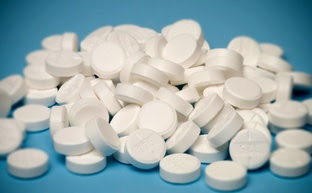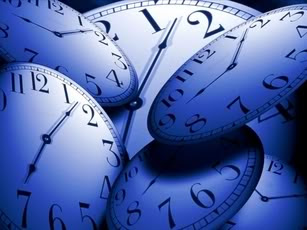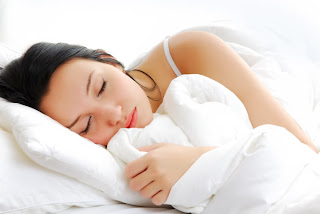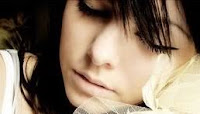Sleeping Disorders - The Shocking Truth
To successfully treat symptoms of any sleeping disorder it is necessary to understand the reason behind each particular inability to sleep. First of all insomnia is classified into primary and secondary insomnia.
The causes of primary insomnia are most often related to irregular conditions in a person’s day-to-day life experiences. The causes of primary insomnia are environmental influences and are not related to other health conditions.
Inconsistent hours: About 60-70% of all shift workers develop sleep disturbances. Working in non-conventional hours such as rotating shifts or maintaining later hours during weekends can make you vulnerable to sleep problems.
Napping: Daytime napping will affect night time relaxation.
Food and drink
Heavy meals: Foods with large amounts of protein (meats, beans) eaten close to a bed time affect the ability to fall asleep.
Light meals: On the contrary, if you go to bed hungry the hunger will keep you awake just the same way as heavy meal do. People that are trying to lose weight frequently wake up.
Sugar: Sugar is used in many foods; ketchup for example contains high amounts of sugar which can keep you awake at night. So make sure to check for the sugar content in the foods you eat leading up to bedtime.
Caffeine: Drinks containing caffeine such as coffee and some sodas can have a profound effect on your ability to fall asleep. There are also some foods that contain caffeine that you may not be aware about. Chocolate has caffeine in it and the darker it is, the more caffeine it has.
Medications: Common and over-the-counter drugs for asthma, colds and weight loss are noted for containing stimulants. Medications taken for allergies, high blood pressure, heart disease, thyroid disease, birth control, pain killers, depression (especially SSRI antidepressants) can lead to insomnia.
 Alcohol: Although alcohol may help you fall asleep, it can be a contributor to insomnia. It interrupts your sleep cycle causing you to wake prematurely and preventing you from a full night's sleep.
Alcohol: Although alcohol may help you fall asleep, it can be a contributor to insomnia. It interrupts your sleep cycle causing you to wake prematurely and preventing you from a full night's sleep.
Tobacco: It has been found that smokers take longer to fall asleep than non-smokers due to the nicotine (a stimulant) present in their bodies.
Exercise Choices
Sedentary lifestyle: If you get little or no regular exercise, you are also at risk of developing sleep problems.
Exercise: Exercising too close to your bedtime can be one of insomnia causes. When you exercise, your blood is being pumped faster, waking up your senses. Exercising releases stimulating brain chemicals which may prevent sleep onset.
Cause #2 Sleeping Environment
Lights and Noise: Unwanted lights or noise may be keeping you from falling asleep or staying asleep.
Extreme temperatures: If the bedroom is too warm or if the air doesn't circulate well these are things that fall under the list of insomnia causes. Rooms that are cooler are easier to sleep in.
Space: A common cause of insomnia symptoms is not having enough natural space to twist and turn in the night. Blocks or objects in your bed can cause disruption to the natural sleeping cycle that can have lasting effects into the next day.
Partner: A lot of people may not know this but a partner snoring can reach 90 decibels - that's as loud as a kitchen mixer. If your partner snores it is likely to wake you up during REM sleep - which is your most restful phase.
Stress: Stress from work, family, financial, or social situations contributes to short-term insomnia. Constant concerns can keep your mind too active, making you unable to relax. The effects of this can work in various ways, leading to stress symptoms which change your brain-chemistry or just leading to a 'busy mind' at night which stops you falling asleep.
Anxiety: Everyday anxieties as well may keep your mind too alert to fall asleep.
Learned insomnia: Worrying about having insomnia and then trying too hard or too much to sleep, making it much more difficult to feel sleepy.
Cause #4 Physical / Psychiatric Sickness
Physical health problems: These include sleep apnea (abnormal breathing while asleep), asthma, hyperthyroidism, tinnitus, arthritis, congestive heart failure, prostate problems and indigestion.
Pain: Some types of pain (muscle, bone, organ pain) can be key insomnia causes.
Emotional disorders: Depression is one of the most common causes of chronic insomnia.
Hormonal changes in women: Menstruation, menopause and pregnancy can trigger insomnia.
Decreased melatonin: To feel sleepy your brain needs to produce a chemical called melatonin, a natural sedative.
To successfully treat symptoms of any sleeping disorder it is necessary to understand the reason behind each particular inability to sleep. First of all insomnia is classified into primary and secondary insomnia.
The causes of primary insomnia are most often related to irregular conditions in a person’s day-to-day life experiences. The causes of primary insomnia are environmental influences and are not related to other health conditions.
In contrast, secondary insomnia is related to other underlying conditions such as health issues, chronic stress, depression or anxiety, pain or discomfort during the night, medication or other substances consumed, like alcohol.
Cause #1 Lifestyle
Sometimes the way we live is what brings on insomnia.
Work: If you are a workaholic who works more than 10 hours per day or more than 6 days per week, you may be bringing on your own insomnia problem. If you seldom take time out of your busy schedule to relax you may be programming yourself to be an insomniac.
Inconsistent hours: About 60-70% of all shift workers develop sleep disturbances. Working in non-conventional hours such as rotating shifts or maintaining later hours during weekends can make you vulnerable to sleep problems.
Napping: Daytime napping will affect night time relaxation.
Food and drink
Heavy meals: Foods with large amounts of protein (meats, beans) eaten close to a bed time affect the ability to fall asleep.
Light meals: On the contrary, if you go to bed hungry the hunger will keep you awake just the same way as heavy meal do. People that are trying to lose weight frequently wake up.
Sugar: Sugar is used in many foods; ketchup for example contains high amounts of sugar which can keep you awake at night. So make sure to check for the sugar content in the foods you eat leading up to bedtime.
Caffeine: Drinks containing caffeine such as coffee and some sodas can have a profound effect on your ability to fall asleep. There are also some foods that contain caffeine that you may not be aware about. Chocolate has caffeine in it and the darker it is, the more caffeine it has.
Medications: Common and over-the-counter drugs for asthma, colds and weight loss are noted for containing stimulants. Medications taken for allergies, high blood pressure, heart disease, thyroid disease, birth control, pain killers, depression (especially SSRI antidepressants) can lead to insomnia.
 Alcohol: Although alcohol may help you fall asleep, it can be a contributor to insomnia. It interrupts your sleep cycle causing you to wake prematurely and preventing you from a full night's sleep.
Alcohol: Although alcohol may help you fall asleep, it can be a contributor to insomnia. It interrupts your sleep cycle causing you to wake prematurely and preventing you from a full night's sleep.Tobacco: It has been found that smokers take longer to fall asleep than non-smokers due to the nicotine (a stimulant) present in their bodies.
Exercise Choices
Sedentary lifestyle: If you get little or no regular exercise, you are also at risk of developing sleep problems.
Exercise: Exercising too close to your bedtime can be one of insomnia causes. When you exercise, your blood is being pumped faster, waking up your senses. Exercising releases stimulating brain chemicals which may prevent sleep onset.
Cause #2 Sleeping Environment
Lights and Noise: Unwanted lights or noise may be keeping you from falling asleep or staying asleep.
Extreme temperatures: If the bedroom is too warm or if the air doesn't circulate well these are things that fall under the list of insomnia causes. Rooms that are cooler are easier to sleep in.
Space: A common cause of insomnia symptoms is not having enough natural space to twist and turn in the night. Blocks or objects in your bed can cause disruption to the natural sleeping cycle that can have lasting effects into the next day.
Partner: A lot of people may not know this but a partner snoring can reach 90 decibels - that's as loud as a kitchen mixer. If your partner snores it is likely to wake you up during REM sleep - which is your most restful phase.
Anxiety: Everyday anxieties as well may keep your mind too alert to fall asleep.
Learned insomnia: Worrying about having insomnia and then trying too hard or too much to sleep, making it much more difficult to feel sleepy.
Cause #4 Physical / Psychiatric Sickness
Physical health problems: These include sleep apnea (abnormal breathing while asleep), asthma, hyperthyroidism, tinnitus, arthritis, congestive heart failure, prostate problems and indigestion.
Pain: Some types of pain (muscle, bone, organ pain) can be key insomnia causes.
Emotional disorders: Depression is one of the most common causes of chronic insomnia.
Hormonal changes in women: Menstruation, menopause and pregnancy can trigger insomnia.
Decreased melatonin: To feel sleepy your brain needs to produce a chemical called melatonin, a natural sedative.


























